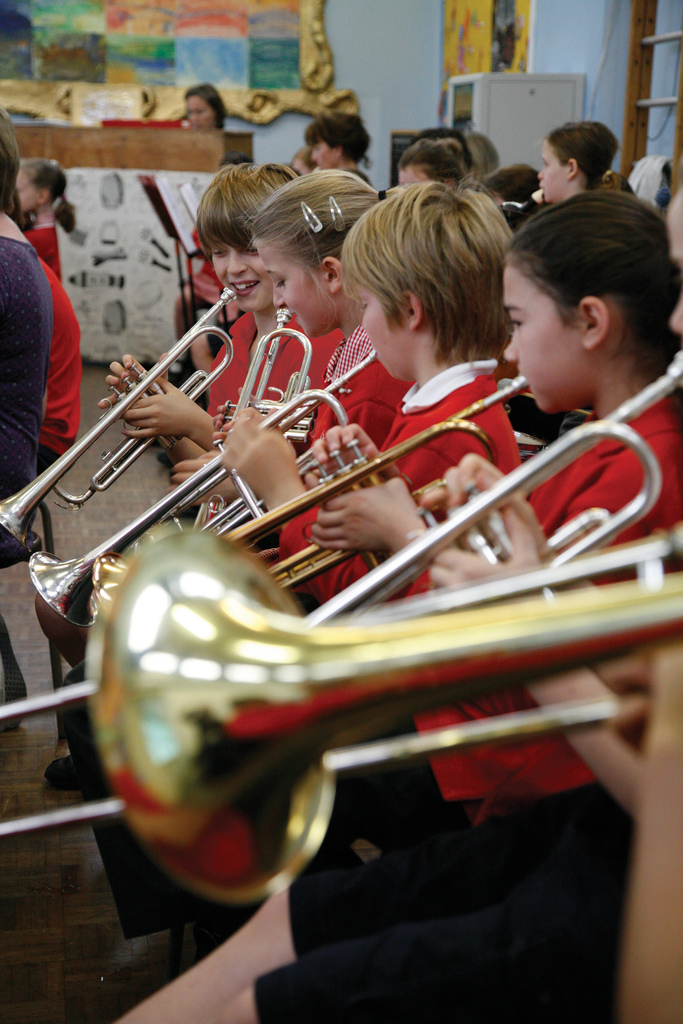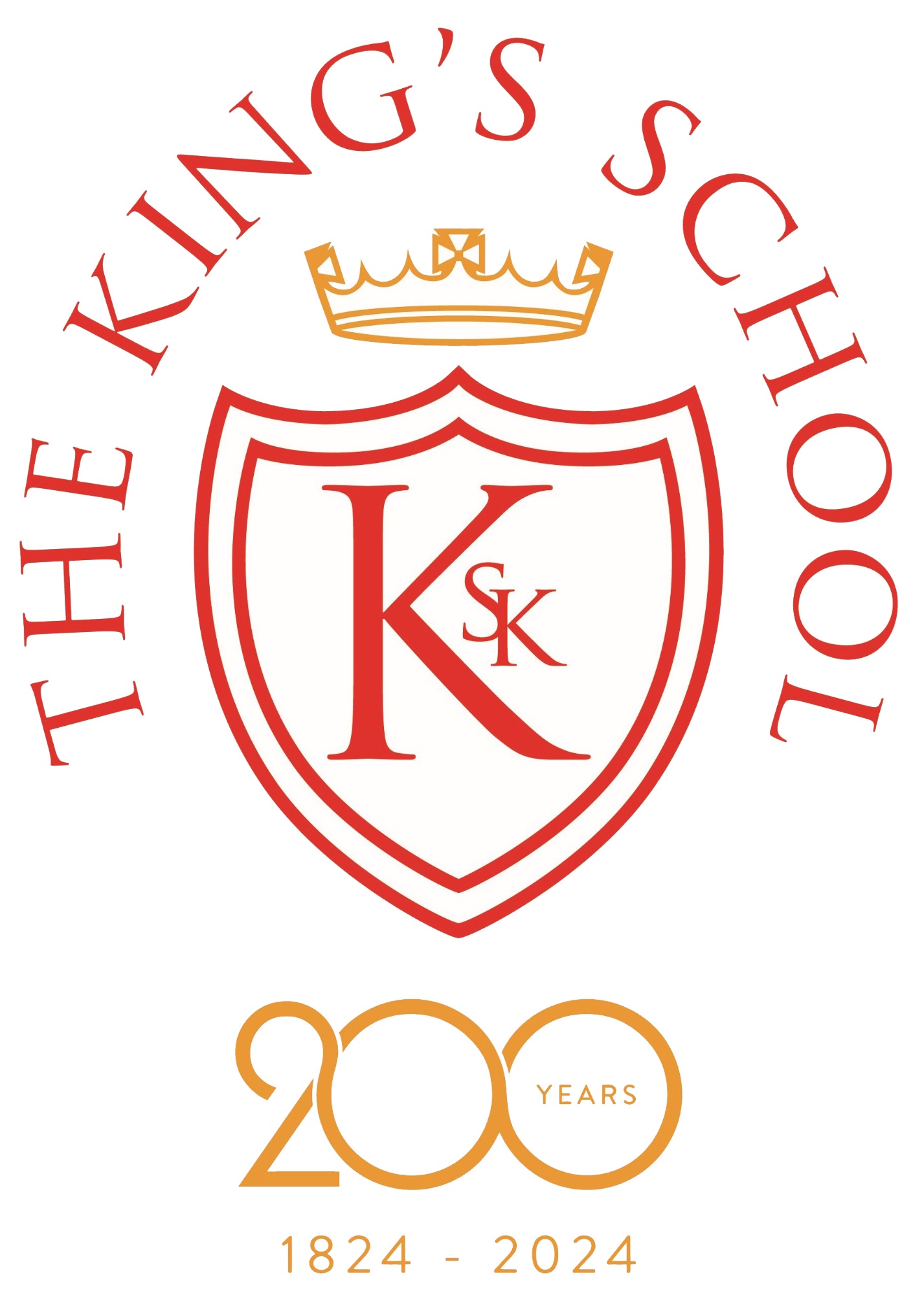Music
"I can do all things through Christ who strengthens me"
(Philippians 4:13)
Intent - How our curriculum is structured and organised
Our high quality, bespoke Music curriculum is based on the National Curriculum programmes of Study for Key Stage 1 and 2, with our children in the Early Years learning to perform songs rhymes, poems and stories with others in accordance with the Early Years Framework. Music is a universal language that engages all learners to develop a love of music and their talent as musicians thus helping to increase self-confidence, creativity and a sense of achievement. Children learn through a variety of music genres, historical periods, styles and traditions and use music appreciation to broaden their musical knowledge as they perform, listen to, review and evaluate music, great composers and musicians.
As a church school, singing enriches our school life through collective worship, church services, celebrations and performances. Alongside developing their vocal skills, there are many opportunities to learn and play instruments both as individuals and within groups. This is supported and developed through the use of technology. Children experience, understand and explore how music is created, produced and communicated, including through the inter-related dimensions: pitch, duration, dynamics, tempo, timbre, texture, structure and appropriate music notations. By providing a rich and varied range of music opportunities, we engage and inspire our children to develop a love of music and take joy in seeing their expertise and talents flourish.
Implementation - How our curriculum is taught
Our youngest children in EYFS and Year 1 are encouraged to compose and perform using variety of instruments. More formal notation methods are taught form year 2 upwards.
EYFS are taught to:
- Create movement in response to music.
- Sing action songs and songs through the ages.
- Recognise different genres and cultures
- Introducing nursery rhymes and progressing to more advanced songs.
- Perform their own Christmas Nativity play and sing at the Summer Fair.
Culminating in achieving and exceeding the Expressive Arts and Design Early Learning Goal.
From Years 1 to 6
Music is taught within the curriculum and as separate subject, guided by a music specialist. Learning the recorder and percussion skills begin in Year 2 and is further developed in Key Stage 2 when children have the opportunity to experience playing in the Orchestra. Composition begins in year 2 more formally, with simple melodies based on recorder notes; this progresses throughout Key Stage 2 building up to composing carols with harmony in year 6. There are many and varied opportunities for our children to play and perform for an audience and share their skills. Singing is embedded within the curriculum and throughout school life, which promotes well-being and enhances our collective worship on a daily basis.
Key stage 1:
Year 1
- The children use their voices expressively and creatively by singing a wide range of songs with the increasing use of actions and percussion instruments to learn basic rhythm skills.
- Introduction of round singing and composition skills.
- Begin to choose and compose sounds within story telling sessions in class.
- Listen to a range of different genres including Bollywood, Country and Western, Musicals and Traditional Folk Songs, as well as introducing them to both African and West Indian music.
- The children perform to an audience: dance and sing with actions their Christmas Nativity play; Round the World Assembly and in the school Summer Fair.
- Introduce rounds and perform these.
Year 2
- The recorder is introduced along with formal notation and the children have the opportunity to perform to an audience: act, sing, and play their instruments in the Christmas Nativity Play, Year 2 Summer Concert and End of Year Assembly Drama.
- Increase their repertoire of songs – including songs in other languages and other popular songs.
- Develop round singing and introduce part singing
- Develop composition skills.
Key Stage 2:
Year 3
- Continue to play the recorder with more advanced notation and both tuned and un-tuned percussion instruments.
- Sing part songs that are more complex.
- Composition using pentatonic scale on tuned percussion, rhythms on un-tuned percussion, recorder melody.
- Music appreciation: the beginnings of music, Early, Baroque and Classical periods. Including extension work on Bach, Mozart and Beethoven.
- Performance at Kew Sparkle community event at Christmas including Music Hall medley and Christmas songs; Year 3 Egyptian show.
- Introduction to reading drum music and performing on drum set
Year 4
- Further progression on the recorder and begin learning ukulele including playing by ear using colour coded chords.
- Further progression on part-singing and ensemble work.
- Composition in Chinese style using pentatonic scale and percussion.
- Music appreciation: Romantic period, including extension work on Strauss, Puccini, Wagner, and Tchaikovsky.
- Performance Assembly of Sing it and Say it – The Romans; Christmas Carol in two part harmony for school carol service; Year 4 Orchestral Summer Concert.
- Further explore reading drum music and performing on drum set as well as drum circles.
- Introduce bell ringing using knowledge of rhythm and pentatonic scale and chords
Year 5
- Further progression on recorder and ukulele and ensemble singing.
- Composition using a Rap rhythm and introducing guitars
- Music appreciation: Modern 1900-Present day including composers Elgar, Vaughan–Williams and Jewish Kletzmer music to link with their RE topic.
- Performance of Christmas Carol in two part harmony for school carol service; Passiontide Assembly including solo, duet and small ensemble singing opportunities; Year 5/6 Summer Concert in church showcasing class music including playing percussion with orchestra.
- Further explore reading drum music and performing on drum set as well as drum circles.
- Introduce bell ringing using knowledge of rhythm and pentatonic scale and chords
Year 6
- Singing using own accompaniments and analysing song structure using Ostinati and pentatonic scales on other instruments. Understanding keys when using different instruments.
- Composition of Christmas Carol (based on above analysis), in small group ensembles.
- Introduction of “Band Lab” to compose using repeated musical patterns supplied in app.
- Music Appreciation: Folk, Blues, Jazz, Ragtime, Rock & Roll and Popular 20th Century music.
- Performance: Christmas Carol Compositions performed at carol service in church; Year 6 Spring Term Concert showcasing guitars, singing and orchestral and piano solos.
- Year 5/6 Summer Concert in church showcasing class music; Year 6 End of Year Musical show including solo, duet and ensemble opportunities.
Our extra-curricular music includes: Year 5/6 Choir and Key Stage 2 Advanced Orchestra they perform at school and local community events and the choir has the opportunity to perform with Young Voices – a choir of 8,000 children at the O2 Arena.
Richmond Music Trust provides private individual and group lessons in woodwind and stringed instruments. Private group guitar lessons are offered in Years 5/6 both before school and during break. Private piano lessons are available for Year 2-6 pupils, which are taken during the school day. Pupils can learn to be part of a rock band learning electric instruments including guitar, bass guitar, keyboards and drums with vocals to make up the band developing their skills to play and perform with others musically with increasing confidence and control.
Impact - A cohesive learning journey
During their time at The King’s School, the children will have listened to, reviewed and evaluated music across a wide variety of genres and traditions from both the past up to and including the present day. They will have listened to a range of live and recorded works of many of the great composers and have developed an understanding of the origins and history of music. The children will have played and performed on many occasions, using both their voices and range of musical instruments with an increasing level of accomplishment, and will have accumulated a background in the structure and theory of music.
We feel confident that our high quality bespoke Music curriculum will have engaged and inspired our pupils to continue to develop a lifelong love of music.
Please see below:
- The King's School Music Skills and Progression Map
- The King's School Music Key Overview
- The King's School Music Development Plan Summary

